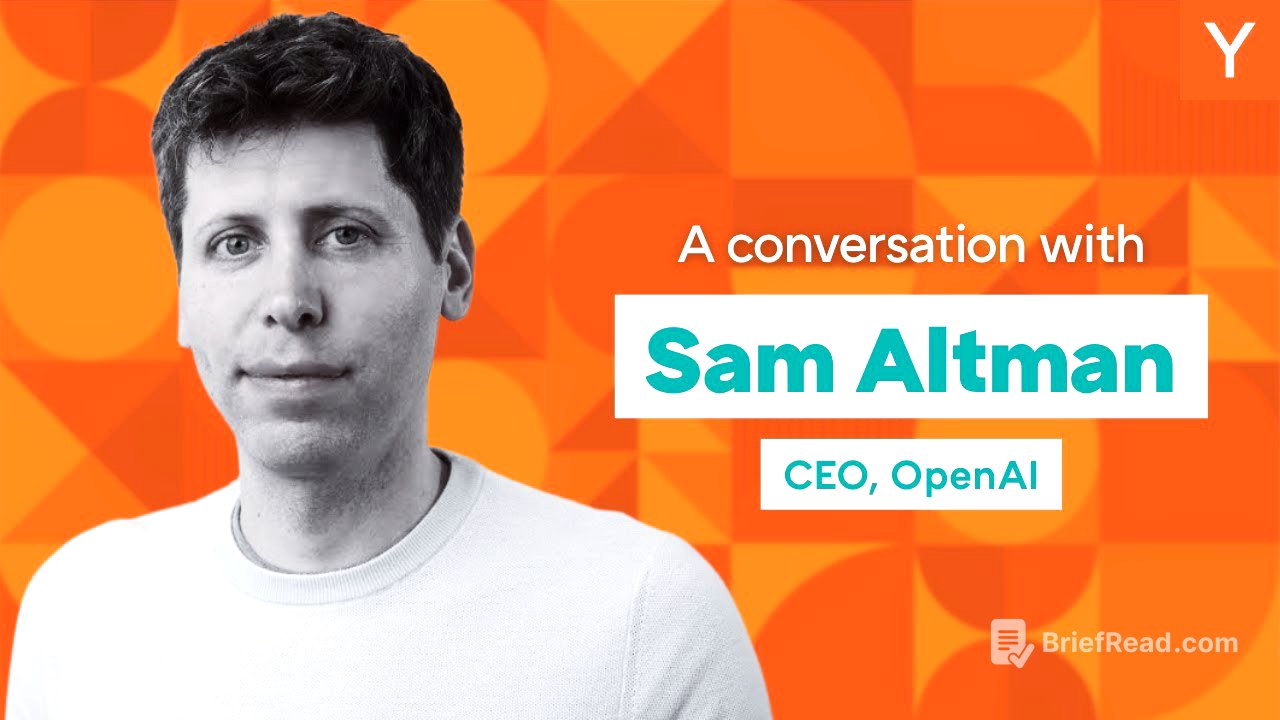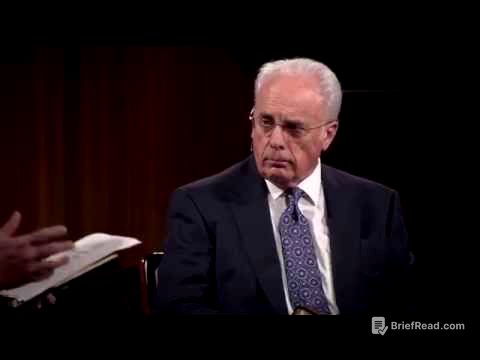TLDR;
Sam Altman discusses the early days of OpenAI, the future of AI, and advice for aspiring entrepreneurs. He emphasizes the importance of pursuing ambitious goals, focusing on AI for scientific discovery, and building defensible businesses. Altman also touches on the challenges of scaling AI infrastructure and the potential for AI to transform various aspects of society.
- Pursue ambitious goals, even if they seem crazy.
- Focus on AI for scientific discovery.
- Build defensible businesses by not replicating existing solutions.
- Embrace the rapid changes in the AI landscape.
- Prioritize conviction, resilience, and trust in your instincts.
We’re going for AGI [0:00]
Sam Altman reflects on the initial skepticism surrounding OpenAI's pursuit of Artificial General Intelligence (AGI). He notes that while most people considered the idea crazy, a small percentage resonated with the vision. Altman expresses optimism about the future, predicting that unimaginable superintelligence will be achieved in the coming decades, positioning the current era as the best time to start a technology company.
Founding OpenAI Against the Odds [1:25]
Altman recounts the early challenges and uncertainties in starting OpenAI. The idea of achieving AGI seemed far-fetched, and DeepMind appeared to be significantly ahead. He highlights the importance of a core group of people committing to the ambitious goal despite the difficulties and numerous reasons not to pursue it. Altman emphasizes that many successful ventures begin with a small group of people dedicated to making it happen.
GPT-4o & the Future of Reasoning Models [5:00]
Altman discusses the current state of AI, noting that the capabilities of AI models are ahead of the products built using them. He anticipates significant improvements in AI models, including cost reductions and the release of a powerful open-source model. Altman believes there is substantial opportunity for new product innovation using reasoning models, which are still relatively new. He points out that startups are beginning to build specifically for reasoning models, recognizing their unique interaction model.
ChatGPT Memory & the ‘Her’ Vision [7:00]
Altman expresses his enthusiasm for the memory feature in ChatGPT, which allows the AI to remember past conversations and personalize interactions. He envisions a future where AI entities get to know users, connect to their data, and proactively assist them. This includes AI running constantly in the background, anticipating user needs, and integrating with various devices and services. Altman references the movie "Her" as an inspiration for this vision of an AI companion.
GPT-5 & the Vision of a Multimodal Supermodel [10:00]
Altman shares his vision for future AI models, aiming for a single integrated model capable of reasoning and generating real-time video. He imagines AI that can conduct research, write code for custom applications, and render interactive live video. Altman believes this will create a new kind of computer interface, especially when combined with complete multimodality (perfect video, coding, and deep reasoning).
Robots at Scale [11:00]
Altman discusses the potential for robots to perform real-world tasks, suggesting that the technology is nearing feasibility. He envisions a future where a humanoid robot is included with the highest tier of ChatGPT subscriptions. Altman raises the question of how many robots are needed to fully automate the supply chain and the potential for robots to manufacture more robots, accelerating their deployment.
Don’t Build ChatGPT — Build What’s Missing [15:00]
Altman advises entrepreneurs not to focus on replicating ChatGPT but instead to explore other opportunities within the AI landscape. He emphasizes that OpenAI aims to be a platform for others to build upon and suggests that there is significant space for innovation beyond creating a similar chat assistant. Altman encourages startups to avoid pursuing the same ideas as everyone else and to focus on defensible, unique solutions.
Elon’s Harsh Email & Building Conviction [17:00]
Altman discusses the challenges of maintaining conviction in the face of criticism. He recounts an experience where Elon Musk sent a harsh email criticizing OpenAI's progress, which caused him to question the project's viability. Altman acknowledges that it is difficult to ignore negative feedback from respected figures but emphasizes the importance of perseverance and resilience.
One Person’s Leverage in the Next Decade [26:00]
Altman reflects on the increasing capabilities of individuals due to technological advancements. He notes that one person can accomplish significantly more today than in the past, thanks to better tools and resources. Altman believes that the next decade will see a substantial change in what a single person or small team can achieve, driven by reduced coordination costs and increased access to knowledge and tools.
AI for Science: Sam’s Personal Bet [32:00]
Altman expresses his personal excitement about the potential of AI for scientific discovery. He believes that advancements in science are fundamental to long-term economic growth and improving people's lives. Altman suggests that AI could vastly accelerate the rate of scientific discovery, leading to significant improvements in various aspects of society.









